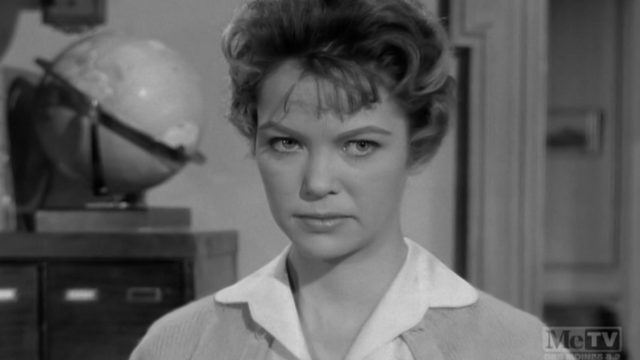There is a lot more to Louise Fletcher than One Flew Over the Cuckoo’s Nest. Which is good, because frankly that is a terrible movie. Ken Kesey said the book was based on his time working at a mental hospital in Menlo Park, California, but it has a fundamental misunderstanding of mental illness and the real benefit a properly-run mental hospital could provide to the seriously ill. It’s true that there are plenty of people who have over the years worked in mental hospitals who were on power trips the way Nurse Ratched clearly was, and in fact I could talk a lot about that. But it doesn’t make McMurphy a good person or Chief Bromden not legitimately ill.
Actually, she was probably cast in the role for pretty much the same reason she had a hard time finding work earlier in her career—because she was tall for a woman. As tall as all that, honestly, but she said she was routinely cast in Westerns because the actors were even taller than she was—she was 5’ 9.5”. She was the daughter of two deaf parents who grew up independent to a certain extent because she had to. She had been taught to speak by a hearing aunt, as were all three of her siblings, all of whom could also hear.
Possibly, though—as with Lon Chaney—her need to express herself to her parents improved her acting and the quality of her expression. Certainly she’s one of the only people who has delivered any of their Oscar acceptance speech in ASL. (I think we’re up to three now.) Perhaps because she was tall and imposing-looking, as opposed to petite and demure-looking, there’s not a lot of detail on either her IMDb page or her Wikipedia page. I don’t know if she was driven to act or just kind of stumbled into it, but I can say for sure is that she spent a lot of years as a working actress and did things she would’ve been happier not to.
Apparently her hardest was Flowers in the Attic, because she was forbidden to humanize her character any. I’ve read the prequel, which is told from her character’s perspective, and it’s clear that she is a lonely, betrayed woman who never had any reason to believe anyone could love her for herself—a woman for whom things were even worse than Flowers in the Attic reveals to us. It would be interesting to have seen the role as Louise Fletcher wanted to portray her; the book, and therefore the movie, may be from Cathy’s perspective, but that doesn’t mean it wouldn’t have been nice to see flashes of how Olivia (I’m not sure she gets a name in the first book) was really feeling.
In the end, Fletcher seemed to have settled into steady TV work. She’d done no little of it early in her career—those ubiquitous Westerns, of course, but also two episodes of Perry Mason—but rather than make more terrible potboilers, she was on Deep Space 9 and VR.5 and Joan of Arcadia. And, okay, maybe she did TV potboilers as well. She was pretty firm on the idea that she worked because she had to a lot of the time, because no one was beating down her door for outstanding roles. And even she didn’t like Cuckoo’s Nest in recent years.

